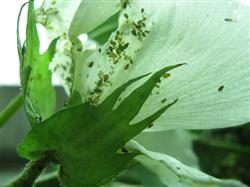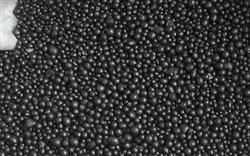What should agricultural ammonium bicarbonate pay attention to when it is used?

What should be paid attention to when agricultural ammonium bicarbonate is used? Please introduce the application of agricultural ammonium bicarbonate should pay attention to the following points: 1, ammonium bicarbonate can not be mixed with alkaline fertilizer to prevent nitrogen volatilization, resulting in nitrogen loss. 2. Avoid foliar spraying. Ammonium bicarbonate has strong corrosiveness to crop leaves, which is easy to burn leaves and affect photosynthesis, so it can not be used as foliar spraying. 3. Ammonium bicarbonate, whether used as base fertilizer or topdressing fertilizer, can not be sprinkled on the surface to prevent nitrogen volatilization, resulting in nitrogen loss or fumigation of crops. 4. when the soil is dry or the soil moisture is insufficient, ammonium bicarbonate should not be applied to prevent volatilization at high temperature and affect the fertilizer efficiency. 5. Ammonium bicarbonate should not come into contact with crop seeds, roots, stems and leaves to prevent burns. 6. Ammonium bicarbonate should not be used as seed fertilizer, so as not to burn the embryo and affect germination and seedling emergence. 7. Avoid mixing with bacterial fertilizer and urea. Ammonium bicarbonate will emit a certain concentration of ammonia after application, and if it comes into contact with bacterial fertilizer, it will kill the living bacteria in bacterial fertilizer and lose the yield-increasing effect of bacterial fertilizer; ammonium bicarbonate can not be mixed with urea because urea can not be directly absorbed by crop roots and can be absorbed by crops only after it is converted into ammonium nitrogen under the action of urease in soil. After ammonium bicarbonate was applied to soil, the soil solution showed acid reaction for a short time, which would accelerate the volatilization loss of nitrogen in urea. Click to get more nitrogen, phosphorus, potassium application techniques click to get more chemical fertilizer application techniques
- Prev

How to control aphids when planting cotton?
How to control aphids when planting cotton? Please introduce control methods for planting cotton to control aphids, including spraying omethoate on overwintering hosts to eliminate aphids on overwintering hosts. The methods of controlling aphids in cotton fields are as follows: 1,3% acetamiprid 1000 to 2000 times liquid spray per mu. 2, 5% targeted at 2500 to 4,000 per mu.
- Next

What should be paid attention to in the application of organic fertilizer?
What should be paid attention to in the application of organic fertilizer? Organic fertilizer has comprehensive nutrients and long-lasting balanced fertilizer effect, which can not only improve soil structure, improve soil fertility, promote the release of soil nutrients, but also supply crop nutrients, especially for the development of organic agriculture, green agriculture and pollution-free agriculture. But Shi.
Related
- Fuxing push coffee new agricultural production and marketing class: lack of small-scale processing plants
- Jujube rice field leisure farm deep ploughing Yilan for five years to create a space for organic food and play
- Nongyu Farm-A trial of organic papaya for brave women with advanced technology
- Four points for attention in the prevention and control of diseases and insect pests of edible fungi
- How to add nutrient solution to Edible Fungi
- Is there any good way to control edible fungus mites?
- Open Inoculation Technology of Edible Fungi
- Is there any clever way to use fertilizer for edible fungus in winter?
- What agents are used to kill the pathogens of edible fungi in the mushroom shed?
- Rapid drying of Edible Fungi

